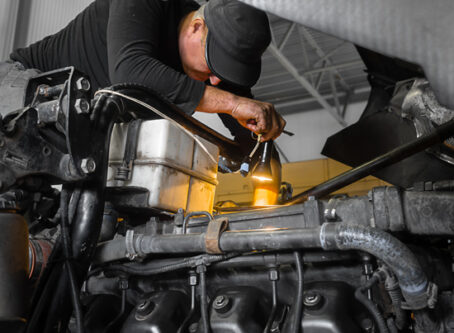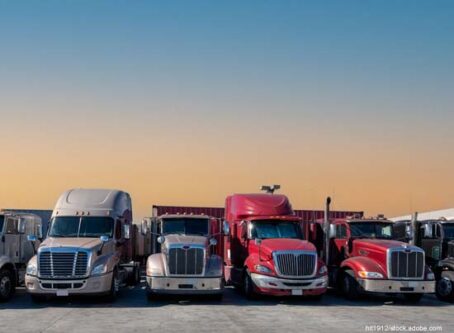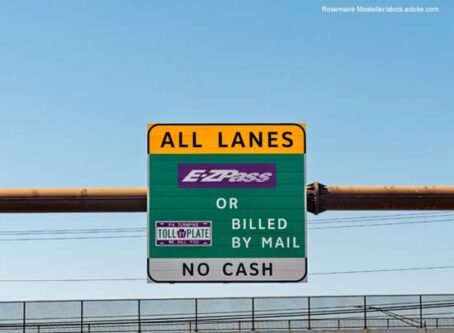Oregon transportation panel discusses tax disparity for large trucks
Discussion is officially underway at the Oregon statehouse to address large trucks in the state being overcharged for transportation taxes.
Figures provided by the Oregon Trucking Association show the trucking industry paid 34% of all taxes owed by Oregon motorists, despite trucks representing only 14% of vehicle miles traveled in the state.
In January, the OTA and three motor carriers filed a lawsuit against the state of Oregon, the Oregon Department of Transportation, Gov. Tina Kotek, and the Oregon Senate and House leaders. The lawsuit claims that the state’s weight-mile tax is unconstitutional because it forces truck drivers to pay more than they should be required to pay.
At issue is the state’s constitution, which requires the state highway fund to be “fair and equitable to light and heavy users alike to ensure that cars and trucks pay their fair share of the usage of the road.”
The Oregon Legislature must approve any changes to the state constitution, and the governor must sign.
Three bills to address issue
With the legal fight hanging over its head, the Joint Committee on Transportation held a hearing this week to discuss three bills to rectify the disparity between revenue paid by motorists and truckers.
The first bill would require the Oregon DOT to prepare and submit a report on needed changes to state law to balance costs between cars and trucks. HB4165 would require the report to be presented by Sept. 14.
Multiple amendments have been offered to the legislation introduced by Rep. Shelly Boshart Davis, R-Albany.
One change would return weight-mile taxes to rates imposed in 2020. Another possible revision would simply repeal the weight-mile tax. Instead, collection of fuel taxes would be instituted for commercial vehicles.
Certain trucking operations would be eligible for fuel tax refunds.
Two nearly identical bills originating from the Senate would lower weight-mile taxes. SB1519 and SB1543 also would require ODOT to adopt rules specifying the manner of calculating, applying and issuing refunds to taxpayers who overpaid weight-mile taxes in recent years.
Equity required
Jana Jarvis, OTA president, reminded the panel the state’s constitution requires equity between light- and heavy-duty vehicles.
She highlighted the state’s biennial Highway Cost Allocation Study. This study is used to understand the cost responsibility of each class of vehicle.
The 2021-2023 report showed that heavy vehicles overpaid by 16%, while the 2023-2025 report showed heavy trucks were overpaying by about one-third. Specifically, heavy-duty vehicles are expected to overpay by 32.4% during the next biennium.
“ODOT has estimated the overpayment will cost the trucking industry $528,000 in additional fees every day,” Jarvis testified.
She added that freight volumes and rates are down. As a result, many trucking operations have shut down.
“Now is not the time to be significantly overcharging the freight industry,” Jarvis said. “It’s time to either roll those rates back to equitable levels … or look to change the methodology to a trucking taxation system more aligned with the 49 other states.”
To bring the heavy vehicle equity ratio back into balance, the study recommends reducing weight-mile tax rates across the board to approximately 70% of their current rates.
Time to act
Sen. Lynn Findley, R-Vale, said the Legislature must act now to fix the imbalance between light and heavy vehicles.
“We knew about the significant imbalance in May. It’s now February,” Findley told the panel. “We have a constitutional obligation to do this. We need to do something to fix it.”
Sen. Brian Boquist, R-Polk, said SB1519 would bring the state into balance.
“Regardless whether we do weight-mile or go to a liquid fuel tax, we need to do something pretty immediately,” Boquist testified.
When asked by the panel which payment system OTA would prefer, Jarvis said a fuel tax is ideal. She added that the current system is not cost-effective for the industry.
“In the short term, if you can’t do that, we would like to see you address our tax rates right now,” Jarvis added.
The committee did not vote on any of the bills. Additional meetings are scheduled.
The committee vice chair, Rep. Susan McClain, D-Hillsboro, said she believes there is a commitment by the group to come up with a solution.
“We have to find a solution … Nothing is off the table,” she said. LL









